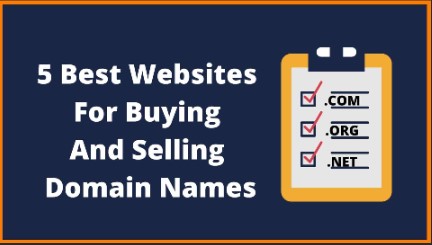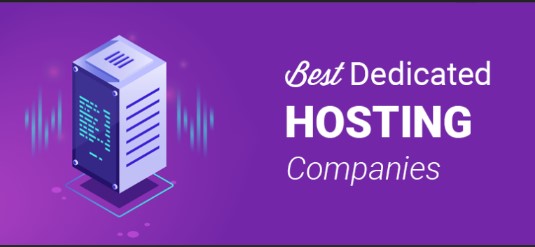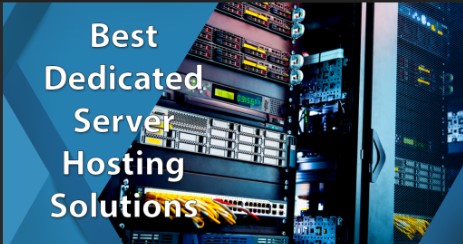Magento Hosting
Magento, a robust and feature-rich e-commerce platform, has emerged as a cornerstone for online businesses worldwide.
Its flexible architecture and extensive customization options make it a preferred choice for businesses of all sizes. However, to harness the full potential of Magento, it’s crucial to understand the intricacies of Magento hosting.
What is Magento?
Magento is an open-source e-commerce platform renowned for its scalability, flexibility, and rich feature set. It empowers merchants to create immersive online shopping experiences tailored to their unique requirements.
Understanding Magento Hosting
Magento hosting refers to hosting solutions optimized specifically for Magento websites. Given Magento’s resource-intensive nature, standard web hosting may not suffice. Magento hosting providers offer specialized infrastructure and configurations to ensure optimal performance and reliability for Magento-powered stores.
Key Features of Magento Hosting
Magento hosting boasts several essential features that cater to the unique requirements of Magento websites.
Scalability and Performance
Magento websites often experience fluctuating traffic volumes, especially during peak seasons or promotional events.
Magento hosting providers offer scalable infrastructure capable of handling sudden spikes in traffic without compromising performance. This ensures seamless user experiences and prevents downtime during high-demand periods.
Additionally, features like content delivery networks (CDNs), caching mechanisms, and optimized server configurations enhance website speed and responsiveness, contributing to superior performance.
Security and Compliance
Security is paramount for e-commerce websites, and Magento hosting providers prioritize robust security measures to protect against cyber threats and ensure compliance with industry standards and regulations such as PCI DSS (Payment Card Industry Data Security Standard).
Advanced security features like web application firewalls (WAFs), malware scanning, SSL/TLS encryption, and regular security audits help safeguard sensitive customer data and maintain trust and credibility.
Types of Magento Hosting
Magento hosting comes in various forms, each tailored to specific business needs and preferences.
Shared Hosting
Shared hosting involves multiple websites sharing the same server resources. While cost-effective, shared hosting may not provide the performance or customization capabilities required for Magento websites, especially as they grow in complexity and traffic volume.
Shared hosting is suitable for small-scale Magento stores or businesses with modest traffic and resource requirements.
VPS Hosting
Virtual Private Server (VPS) hosting allocates dedicated resources within a virtualized environment, offering greater performance and control compared to shared hosting.
VPS hosting allows for more customization and scalability, making it suitable for mid-sized Magento stores or businesses seeking enhanced performance and reliability.
Dedicated Hosting
Dedicated hosting provides exclusive access to an entire physical server, offering unparalleled performance, security, and customization options. With dedicated resources, dedicated hosting is ideal for large-scale Magento enterprises or high-traffic websites that demand maximum reliability and performance.
Choosing the Right Magento Hosting Provider
Selecting the right Magento hosting provider is a critical decision that can significantly impact your e-commerce store’s performance, security, and growth potential.
Given the resource-intensive nature of Magento, it’s essential to choose a provider that not only meets but exceeds your expectations in various key areas. Here’s a detailed guide to help you make an informed choice.
Factors to Consider
When evaluating Magento hosting providers, consider the following crucial factors to ensure you select a provider that aligns with your business needs and goals.
Performance and Uptime Guarantees
Performance is a cornerstone of a successful e-commerce store. Look for hosting providers that offer robust performance metrics, including high uptime guarantees (ideally 99.9% or higher).
This ensures your site remains accessible to customers, minimizing the risk of lost sales due to downtime. Additionally, check for features such as SSD storage, dedicated resources, and optimized server environments tailored for Magento.
Security Features and Compliance Certifications
Security is non-negotiable, especially for e-commerce platforms handling sensitive customer data. Evaluate the security measures provided by hosting companies, including firewalls, DDoS protection, regular malware scans, and automatic updates.
Compliance with industry standards such as PCI DSS is essential for handling payment transactions securely. Ensure your hosting provider offers SSL certificates, intrusion detection systems, and robust data encryption protocols.
Scalability Options and Resource Allocation
As your business grows, your hosting needs will evolve. Choose a provider that offers scalable hosting solutions, allowing you to easily upgrade resources like CPU, RAM, and storage without significant downtime or disruption.
Consider providers that support vertical and horizontal scaling to accommodate traffic spikes and long-term growth seamlessly.
Popular Magento Hosting Providers
Here’s a closer look at some leading hosting providers that specialize in Magento hosting. These companies are known for their robust features, reliable performance, and excellent customer support.
Nexcess
Nexcess, a Liquid Web brand, is renowned for its managed Magento hosting solutions. It offers a range of plans tailored to different business sizes, from startups to large enterprises.
Key features include automatic scaling, built-in CDN, PCI compliance, and 24/7 customer support. Nexcess’s cloud infrastructure ensures high performance and reliability, making it a top choice for Magento hosting.
SiteGround
SiteGround is well-regarded for its customer-centric approach and high-quality hosting services. It provides specialized Magento hosting with features like one-click installations, free SSL certificates, daily backups, and proactive security measures.
SiteGround’s hosting plans are designed to deliver exceptional speed and uptime, supported by their in-house caching system and SSD storage.
MageMojo
MageMojo exclusively focuses on Magento hosting, offering highly optimized environments tailored to Magento’s unique requirements. Their hosting plans include features such as automated scaling, advanced caching solutions, real-time performance monitoring, and comprehensive security measures.
MageMojo’s deep understanding of Magento makes it a preferred choice for businesses seeking specialized hosting solutions.
Comparing Features, Pricing, and Customer Reviews
Feature Comparison
When comparing hosting providers, create a checklist of essential features and evaluate how each provider meets these criteria. Consider aspects such as server infrastructure, backup and restore options, control panel usability, and additional tools for performance optimization and security.
Pricing Structures
Understand the pricing models of different hosting providers, including any hidden costs such as setup fees, renewal rates, and additional charges for extra features. Compare the value for money by balancing the cost against the resources and services offered. Opt for providers that offer transparent pricing and flexible billing options, such as monthly or annual plans.
Customer Reviews and Testimonials
Customer feedback provides valuable insights into the real-world performance and reliability of hosting providers. Read reviews and testimonials on independent review sites and forums to gauge customer satisfaction levels. Pay attention to recurring themes in the feedback, such as support responsiveness, uptime reliability, and ease of use.
Customer Support Quality
Reliable customer support is crucial for addressing technical issues promptly and minimizing downtime. Evaluate the support channels offered by hosting providers, such as live chat, phone support, and email. Consider the availability of 24/7 support and the expertise of the support team in handling Magento-specific issues.
Conclusion
Choosing the right Magento hosting provider involves careful consideration of various factors, including performance, security, scalability, and support.
By thoroughly evaluating these aspects and comparing leading providers like Nexcess, SiteGround, and MageMojo, you can make an informed decision that ensures your Magento store operates smoothly, securely, and efficiently.
Investing in the right hosting solution is a critical step toward achieving long-term success and growth in the competitive e-commerce landscape.
Selecting the right Magento hosting provider is crucial for ensuring optimal website performance, security, and scalability.
Factors to Consider
When evaluating Magento hosting providers, consider factors such as performance and uptime guarantees, security features and compliance certifications, scalability options, and resource allocation. A comprehensive understanding of your business requirements will guide you in choosing the most suitable hosting provider.
Popular Magento Hosting Providers
Leading Magento hosting providers include industry giants like Nexcess, SiteGround, and MageMojo. Each provider offers a range of hosting plans tailored to different business needs and budgets.
Conducting thorough research, reading customer reviews, and comparing features and pricing will help you make an informed decision.
Best Practices for Magento Hosting
Optimizing Magento hosting involves implementing best practices to enhance performance, security, and reliability.
Performance Optimization
Optimize Magento website performance by implementing techniques such as code optimization, image compression, and leveraging caching mechanisms. Additionally, regularly monitor website performance metrics and fine-tune server configurations to ensure optimal speed and responsiveness.
Security Enhancements
Enhance Magento website security by implementing measures such as regular security patches and updates, strong password policies, and multi-factor authentication (MFA). Conduct security audits and vulnerability assessments periodically to identify and mitigate potential risks.
Backup and Disaster Recovery
Implement robust backup and disaster recovery plans to safeguard against data loss and downtime. Regularly backup Magento website data and store backups securely offsite. Test backup restoration procedures to ensure data integrity and minimize downtime in the event of a disaster or cyber attack.





